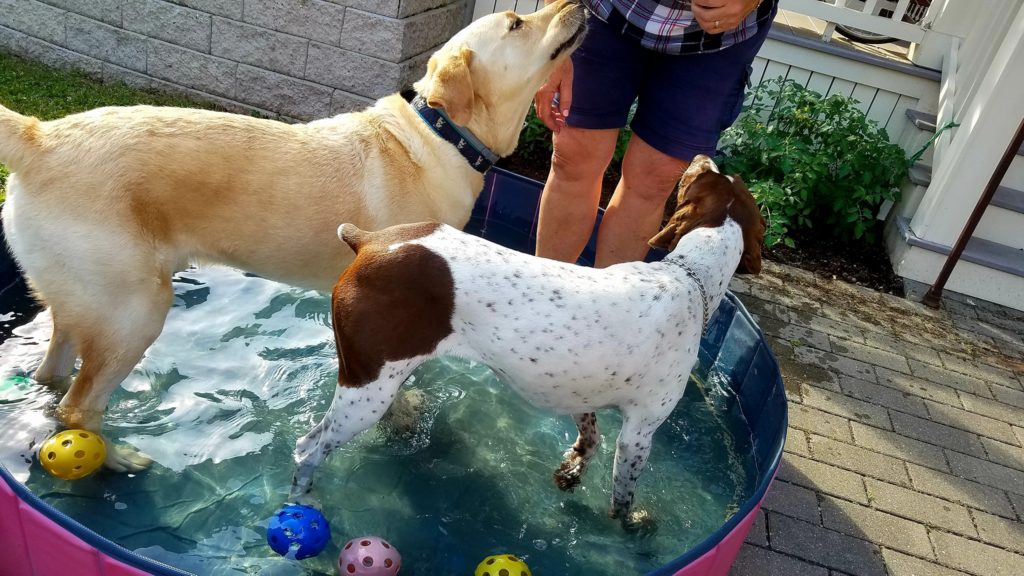Ask the Vet: Don’t risk your dog’s life in the summer heat
July 3, 2018
As we enter the warm summer months, it’s fun to get outside to run, walk or play with our beloved and eager dogs.
But the heat can be deadly for dogs – and we’re not just talking about the tragic stories of pets locked in hot cars. Every year at BluePearl Veterinary Partners hospitals, we see dogs that have become dangerously ill or even died after going on hikes with their owners, playing too strenuously at a dog park or even being left in the yard.
To protect your dog, it helps to learn more about how the heat affects them:
- Dogs don’t have the same kind of sweat glands that humans have. In humans, the skin gets covered with sweat and the moisture evaporates, which has a cooling effect. Dogs don’t sweat, so there’s no cooling effect.
- The main way dogs cool off is by panting — breathing in air rapidly to cool down. But on hot, humid days, dogs are sucking in hot, humid air, which doesn’t cool them down as well.
- Some dogs pant better than others. Certain breeds such as pugs and English bulldogs, with very short snouts, don’t cool down nearly as efficiently with their panting, and are therefore at even greater risk in the heat.
- Don’t be fooled when your dog seems so happy to go outside – this doesn’t mean they’re safe. Dogs love to play with their owners, and will follow them right up to the moment they collapse.
So how hot is too hot for your dog to spend time outside? There is no one answer. But it would be wise to consult the National Weather Service heat index, which shows conditions that require caution for humans. Generally speaking, if it’s hot for humans, it’s really hot for dogs.
Here are a few tips for keeping dogs safe in the hottest summer months:
- Consider exercising your dog indoors during the worst months of summer.
- At very least, find the coolest time of day possible if you choose to walk, run or play outside with your dog. This might be as the sun is rising or setting. Choose a place with water for your pet to drink, and shade.
- Be all the more cautious if you live in a hot, southern state where cool times of day are hard to find. But don’t be complacent if you’re in New England or Minnesota — mid-afternoon in August can be just as brutal.
- If your dogs have labored breathing to begin with, they shouldn’t be exercising outside in the heat because they are even less able to cool down through panting.
If your dog is overheating, you can hose her off with cool water. Never use ice water, which can actually make the problem worse. Your dog may be suffering from heat stroke if she lies down and won’t get up, is not alert and won’t stop panting. If this happens, put her in your car with the air conditioning on and drive to the nearest animal emergency hospital.
As always, it’s best to make regular visits to your family veterinarian for ongoing advice on the care of your pet.
By Kristina DePaula, DVM, DACVECC – Medical Director, BluePearl Veterinary Partners – Waltham. In partnership with NEADS.

